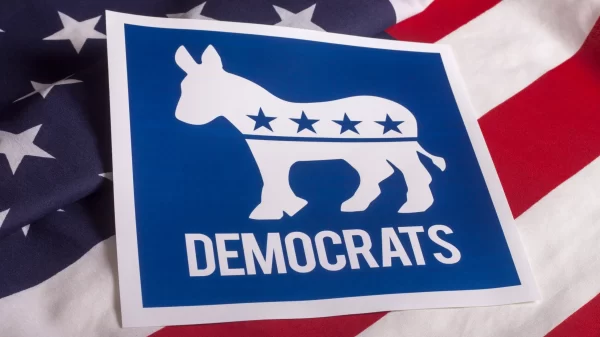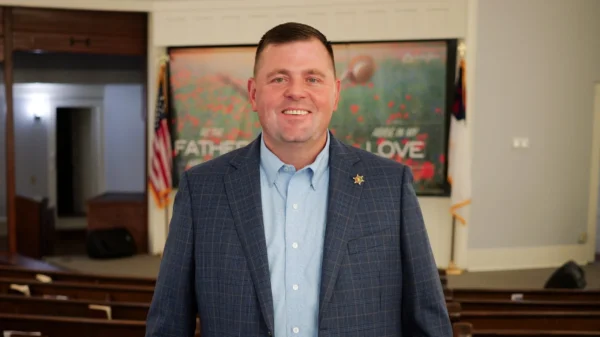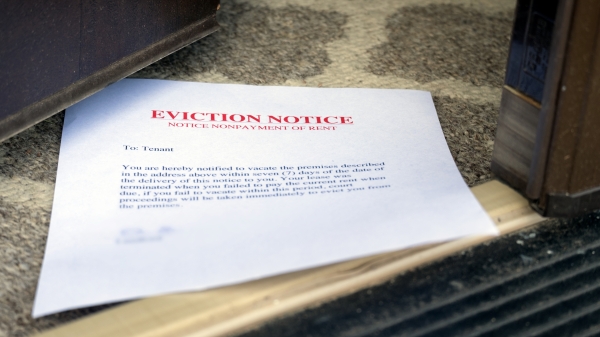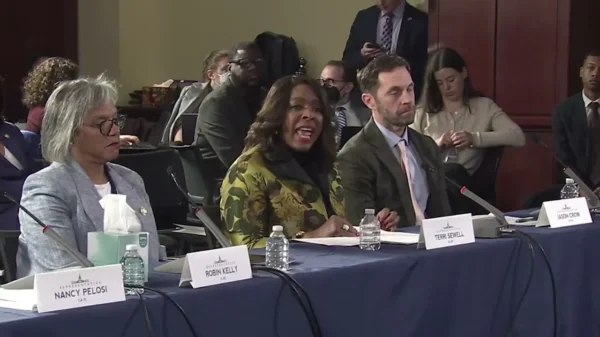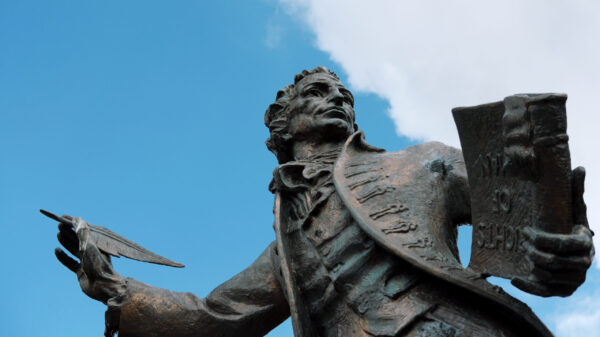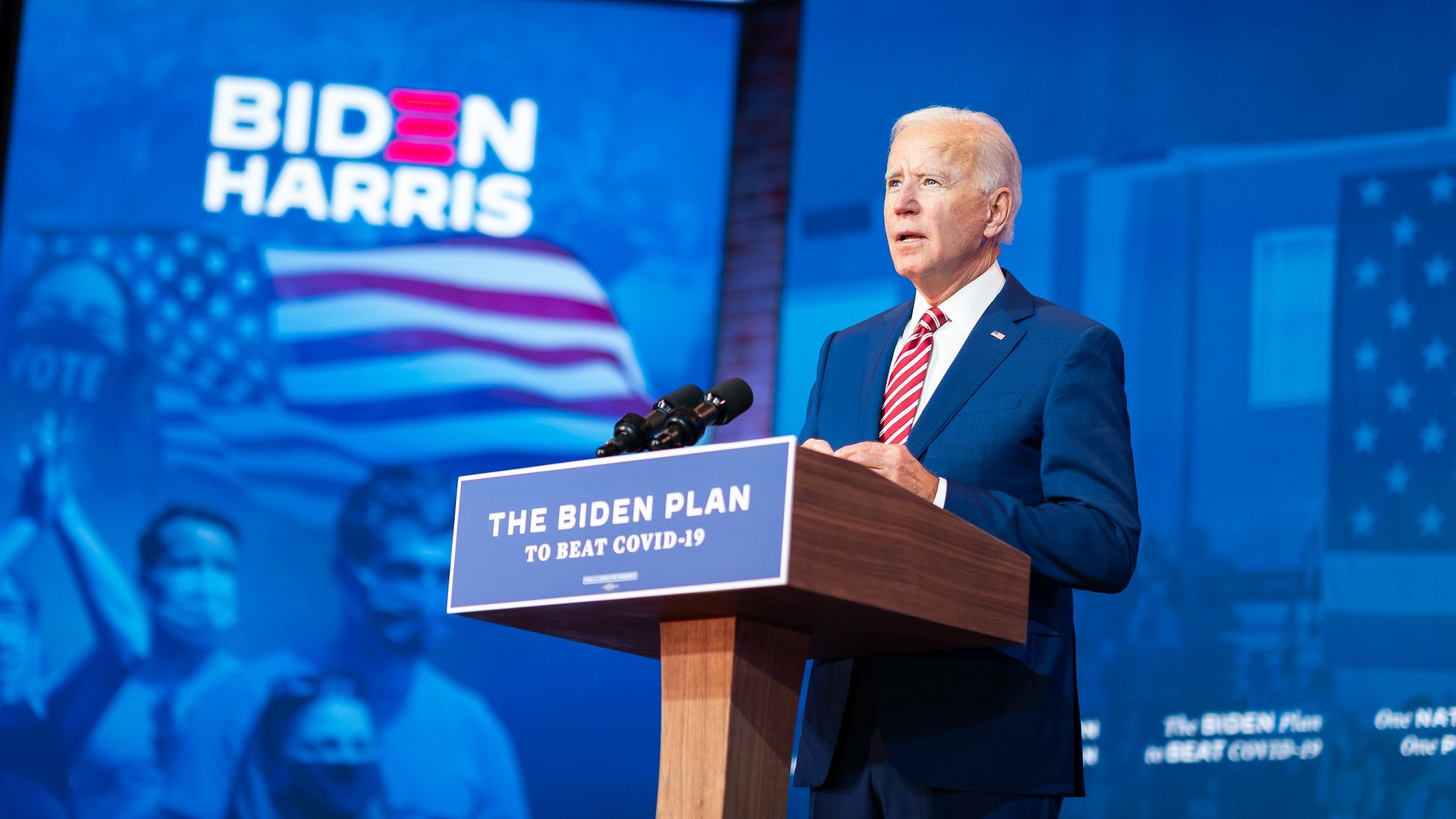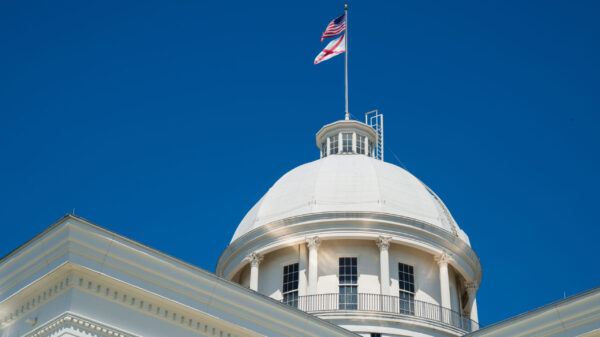The Electoral College will vote on Monday for president and vice president. All 50 states and the District of Columbia have already certified the election results for the 2020 election and named their slates of electors, who will meet around the country, generally in state capitals.
Those electors will formally cast their ballots for president and vice president. Based on the certified results last week, Biden and Harris should have a commanding lead when the votes are finally tabulated. Former Vice President Joe Biden will formally be voted in as president-elect, and Sen. Kamala Harris will be voted in as vice-president-elect.
Those ballots will then be sent to Washington, where they will be counted by Congress on Jan. 6. If Congress certifies the vote, Biden will then be sworn in as the 46th President on Jan. 20.
The system is all set forth in the Constitution and detailed in U.S. law. The last major change occurred in 1933 with the ratification of the 20th Amendment to the Constitution, which moved Inauguration Day from March to January following the November election.
It also established that if the president-elect dies before inauguration that the vice president-elect would be sworn in as the president of the United States. Not much else has changed. The 25th Amendment further clarified succession issues, including what happens if a vice president dies or is removed from office.
The law requires that the electors meet on the first Monday after the second Wednesday in December. That allows states plenty of time to count, and if necessary, recount the votes and settle any disputes that arise. This election has had more of those challenges and disputes than most. Friday’s decision by the U.S. Supreme Court not to hear a Texas challenge means that all the electors in all 50 states plus the District of Columbia will by law occur.
The electors will gather in Montgomery and in their respective states and cast votes, individually and on paper ballots, for president and vice president. It is the electors and not the voters who actually select the president and vice president under the Constitution. The electors’ votes are what is counted by Congress on Jan. 6.
The electors were picked in the spring or summer by state parties. The Alabama Republican Party Executive Committee selected a slate of electors. Last week, the Alabama vote was certified giving President Donald Trump and Mike Pence the victory in Alabama. The Alabama Republican Party slate of electors then became the official electors for the state of Alabama.
In states like Georgia, Pennsylvania, Michigan and Wisconsin, where Biden and Harris won victories, then their slate of Democratic Party electors was chosen to represent the state.
Alabama has nine electors: two at-large and one from each of Alabama’s seven congressional districts:
- The at-large electors are Dennis Beavers from Blountsville and Alabama Republican Party Vice Chairman John Wahl from Athens.
- Jackie Gay of Brewton represents the 1st Congressional District.
- Jeana Boggs of Deatsville represents the 2nd Congressional District.
- Joseph Fuller of Alexander City represents the 3rd Congressional District.
- Rev. John Killian of Fayette represents the 4th Congressional District.
- Elbert Peters of Huntsville represents the 5th Congressional District
- Joan Reynolds of Shoal Creek represents the 6th Congressional District.
- Alabama Commissioner of Agriculture and Industries Rick Pate of Lowndesboro is representing the 7th Congressional District.
There is nothing in the Constitution or federal law that requires that an elector support the candidate who won their state, but many states have penalties for electors who do not vote for the candidates chosen by the popular vote in their state.
The U.S. Supreme Court has upheld these faithless elector laws as constitutional as recently as July.
There were 10 faithless electors after the 2016 election. Hillary Clinton carried the state of Washington for example, but Colin Powell and Faith Spotted Eagle both received votes for president from faithless electors there. Alabama’s electoral votes are supposed to go to Donald Trump and Mike Pence, but electors can do something differently if they feel like it.
Voting will begin at 9 a.m. CT on the East Coast and conclude with the last state to vote at 6 p.m. CT in Hawaii.
The electors will record their votes in writing and then count them. Then, they sign six copies of a Certificate of the Vote. The National Archives will post those Certificates of Vote when they receive them.
Each state has a pool of alternates if an elector were to die or otherwise be unable to cast their vote.
According to the National Archives, the six copies go by registered mail:
- One copy goes to the president of the U.S. Senate and will be officially counted in the Capitol on Jan. 6.
- Two copies go to the state’s secretary of state.
- Two copies go to the National Archives and Records Administration.
- One copy, a backup, goes to the presiding judge in the district where the electors meet.
The U.S. Postal Service is then tasked with transporting the Certificates of Votes to their respective destinations. Congress will count them on Jan. 6.
Congressman Mo Brooks, R-Alabama, has drawn national headlines for his claim that the election was fraudulent. He has stated his intent to object to the certification of the electoral votes in at least four swing states.
If any U.S. senator were to do the same thing, the joint session of Congress would then conclude and the two bodies would go back to their own chambers and debate the objection. It is not expected that there will be a problem in dealing with and dismissing the objection.
If this became an issue, there would be a state-by-state vote in the House of Representatives where each state would have one vote. The majority of representatives in each state would decide how their state votes.
The House has not had a vote on the presidency since 1825. Then-General Andrew Jackson, Speaker of the House Henry Clay, Secretary of State John Quincy Adams and Secretary of War William Crawford all had won electoral votes but nobody had a majority. Clay threw his support to Adams, resulting in Adams becoming the sixth president of the United States.
Some Democrats in the House similarly objected in 2017, 2005 and 2001 when Republicans won the White House. Those objections went nowhere then and similarly Brooks’ objections are expected to not be a major hurdle for Biden and Harris.
(Original reporting by Microsoft News, the Heritage Foundation, and Wikipedia was consulted in the writing of this report.)




